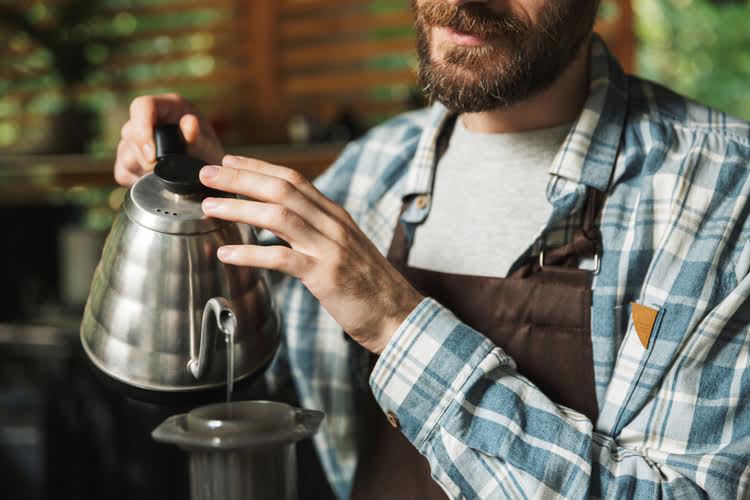What Are The 5 Addiction Stages?
At this stage, the individual has likely become dependent on the substance to function. The body and brain have adapted to the substance, and the individual may experience withdrawal symptoms when they try to stop using. Physical or psychological cravings become persistent, reinforcing the need to continue using the substance.
Choose the correct cycle of addiction.
What once started as a way to relax or fit in has now become a coping mechanism, used to alleviate stress, anxiety, or boredom. The tolerance level increases, meaning more of the substance is needed to achieve the same effect. Over time, subtle changes in behavior occur—irritability when substances aren’t available, a growing desire for the next fix, and even a slight decline in the ability to manage responsibilities. This can cause a person who’d otherwise enjoy casual drinking or avoid substance abuse to become addicted to alcohol or drugs. The addiction cycle isn’t Sober living home a vortex whirlpool-ing you to despair.
D. drug use, withdrawal tolerance, addiction dependence

These symptoms vary depending on the drug but can include anxiety, irritability, nausea, depression, and physical pain. Withdrawal occurs because the brain, after becoming reliant on the drug for dopamine production, struggles to function normally without it. At the heart of addiction or substance use disorder is dopamine, a neurotransmitter in the brain responsible for feelings of pleasure and reward. When someone uses drugs—whether opioids, stimulants, alcohol, or other substances—dopamine levels surge, creating a euphoric high.
The 3 Stages of the Addiction Cycle
These support groups can help reduce the sense of shame and isolation that can lead to relapse. As your use increases, you’ll grow more tolerant to the substance1 and its pleasurable effects. You may start to plan your day around substance use or start canceling plans that might keep you from it. After the first use, you may come back to the substance occasionally. These occasional uses can then become a regular part of your routine, like drinking every day after work instead of just during social events. Copyright © 2025, AddictionHelp.com The information provided by AddictionHelp.com is not a substitute for professional medical advice.
Relapse and Repetition
Treatment centers are ready to help, no matter your addiction stage. Substances like cocaine, methamphetamines, or prescription opioids are often involved, as users chase intense highs despite mounting consequences. I just want to thank my therapist for helping me to accept my anger, and learning how to deal with it. With the help of every staff member, I am a better (sober) person. At Silver Ridge clients are first and foremost treated with respect, kindness, and compassion.
- Our medical staff includes an ASAM certified addiction psychiatrist & an addiction-trained primary care physician.
- For instance, all drugs that lead to a dopamine rush (a euphoric “high” feeling) can lead to addiction, no matter how often you switch from one substance to another.
- Breaking the cycle of addiction is challenging, but with the right support and treatment, it is possible to reclaim control over one’s life.
- Whether you’re seeking help for yourself or a loved one, Nova Recovery Center provides compassionate care and lasting support every step of the way.
- The individual feels completely consumed by their need for the substance, unable to stop even when they realize it’s ruining relationships, work, and health.
I learned to love myself for the first time…I’m going to start a new chapter in my life because of Silver Ridge. The facility, staff, & counselors made me feel like the most important person in the world. I learned effective practices that will make my recovery journey a lifetime goal. Furthermore, mental health issues often become more pronounced during this phase. This primer on demystifying addiction treatmentwalks through what to expect at each stage.
What Makes Something Addictive?
A person desires to return to the intoxication stage of addiction to feel pleasure again and find relief from withdrawal symptoms. For example, when it comes to illicit drugs used to feel a ‘high,’ even one use is considered abuse. The stages of addiction https://seninfos.net/2024/07/26/step-1-a-a-why-the-12-step-journey-begins-with/ typically involve initiating substance use, developing dependence, and eventually becoming addicted. This cycle can repeat through relapses, but it can also be broken with the proper support and intervention.
Initial Use
- This primer on demystifying addiction treatmentwalks through what to expect at each stage.
- However, these consequences are often ignored or rationalized in an attempt to continue using.
- Usually, a combination of factors influences the risk of addiction.
- Contact Hygea Healthcare today for compassionate, professional support.
- BetterHelp can connect you to an addiction and mental health counselor.
Ultimately, with the help of a treatment program and qualified healthcare providers, you can get to the next stage beyond the addiction cycle and break free of your drug dependence for good. The best way to choose the correct cycle of addiction. break the cycle and get help is by pursuing a qualified addiction treatment specialist. They can help you understand your behavior and what originally led to that initial use. Any drug with a similar mechanism of action that is chemically affecting the central nervous system can lead to tolerance, even if you jump from one to another. For instance, all drugs that lead to a dopamine rush (a euphoric “high” feeling) can lead to addiction, no matter how often you switch from one substance to another. It’s the repeating pattern of triggers, cravings, use, consequences, and relapse that keeps people trapped in addictive behaviors.

This is how addiction works—the brain remembers the pleasure and demands it again. Addiction often begins with stress, trauma, or emotional discomfort. A trigger can be anything that sparks the urge to use a substance or engage in a behavior. For some, it may be safe to undergo detox on an outpatient basis.
